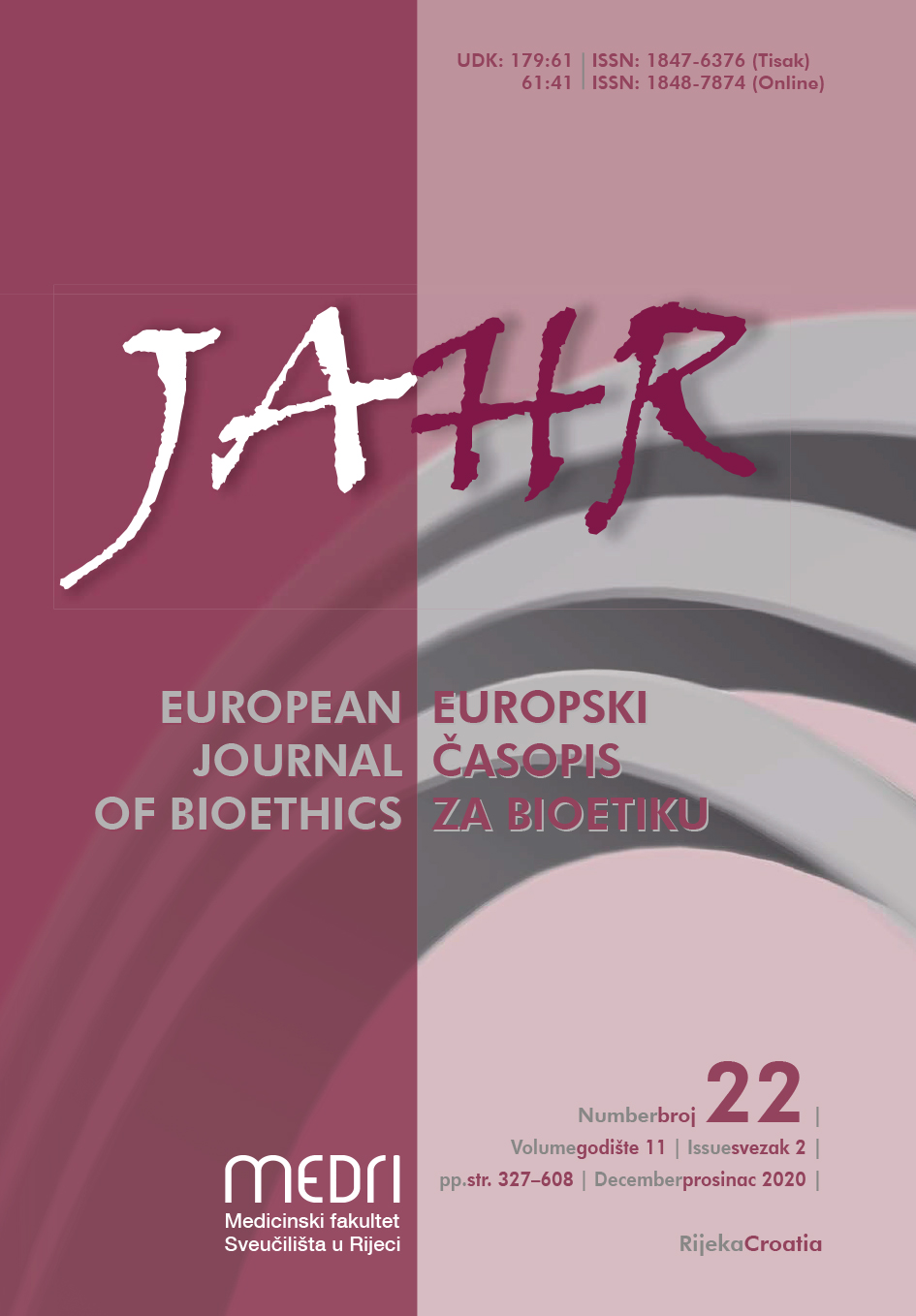Community of philosophical inquiry as a method in early bioethical education
Keywords:
bioethics, community of inquiry, community of philosophical inquiry, ethical education, Matthew Lipman.Abstract
https://doi.org/10.21860/j.11.2.9
‘Community of inquiry’ is a concept introduced by Charles Sanders Peirce, and was originally restricted to the practitioners of scientifc inquiry. M. Lipman (2003) expanded this concept by moving it into a broader setting – the classroom. He converted the classroom into a community of inquiry, in which “students listen to one another with respect, build on one another’s ideas, challenge one another to supply reasons for otherwise unsupported opinions, assist each other in drawing inferences from what has been said, and seek to identify one another’s assumptions.” David Kennedy (2012) claimed how “Lipman, taking a cue from his friend and mentor Justus Buchler, developed and called ‘community of
philosophical inquiry’— the most appropriate way to practice with students the philosophical curriculum that he had developed. Tis idea is also a philosophical one, and it has a farreaching implication, both practical and theoretical – for learning theory, for theory of teaching, for argumentation theory, for theory of knowledge, for group psychology, for moral education, and perhaps, ultimately of the greatest importance, for grounded political theory and practice.” In various and different approaches to philosophy with children, we can fnd a community of philosophical inquiry as one of the main methods. For instance, a community of philosophical inquiry is one of the methods used in Ethics and Values Education: “Te term ethics and values education (EVE) applies to all aspects of education which either explicitly or implicitly relate to ethical dimensions of life and are such that can be structured, regulated and monitored with appropriate educational methods and tools.” (Strahovnik, 2015). Leaning on the cited defnition of EVE, if we focus specifcally on the issues of the contemporary world with its ecological crisis and rapid digitalization, we can set the relation of the ethical dimensions of life as a bioethical question. Using methodology for the community of philosophical inquiry as a basis for bioethical questioning, we can satisfy the need for innovative and effective bioethical education from an early age. In my lecture, I will show how the community of philosophical inquiry can be connected with bioethical topics such as the relationship between man and wild animals, man and plants, man and nature in global, etc.
Downloads
Published
Issue
Section
License
Authors who publish with this journal agree to the following terms:
- Authors retain copyright and grant the journal right of first publication with the work simultaneously licensed under a Creative Commons Attribution License that allows others to share the work with an acknowledgement of the work's authorship and initial publication in this journal.
- Authors are able to enter into separate, additional contractual arrangements for the non-exclusive distribution of the journal's published version of the work (e.g., post it to an institutional repository or publish it in a book), with an acknowledgement of its initial publication in this journal.
- Authors are permitted and encouraged to post their work online (e.g., in institutional repositories or on their website) prior to and during the submission process, as it can lead to productive exchanges, as well as earlier and greater citation of published work (See The Effect of Open Access).



